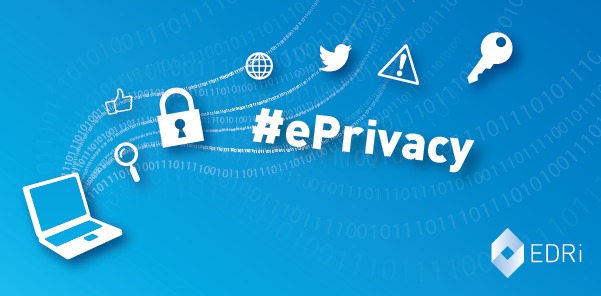ePrivacy proposal undermined by EU Member States
The discussions on the ePrivacy Regulation continue in the European Union (EU) legislative process. They were on hold for a few weeks because of ongoing negotiations on the European Electronic Communications Code (EECC) – another big “telecoms” file that the Council of the European Union is working on.
On 5 December 2017, the Estonian Presidency of the Council proposed new compromises on key articles. This latest proposal for amendments is related to Articles 6, 7 and 8 of the draft ePrivacy Regulation, which concern permitted processing (Art. 6), storage and erasure of communications data (Art. 7) and the protection of stored communications in users’ devices (Art. 8).
Permitted processing
The provisions on permitted processing cover the circumstances under which electronic communications data may be processed.
The Estonian Presidency text suggests a few adaptations to be in line with the General Data Protection Regulation (GDPR) by including the legal ground of vital interest in Article 6(2)(d) and a new recital 17a, as well as provisions for accessibility in Article 6(3)(aa) and the new recital 19a. These additions should not add any risks for privacy issues in the way they are currently designed.
Much more concerning is the addition in Article 6(2)(e) and a recital 17b of a legal ground for scientific research and statistical purposes, similar to the one in Article 9(2)(j) of the GDPR (research, unlike the archiving, need not be “in the public interest”). The text of the recital and the Article state that this “type of processing should be subject to further safeguards to ensure privacy of the end-users by employing appropriate security measures such as encryption and pseudonymisation.” The use of “such as” means that these are just possibilities, not requirements. On top of that, a lot of flexibility would be given to Member States, since these measures must be “based on Union or Member State law, which shall be proportionate to the aim pursued and provide for specific measures”. This creates risks for privacy, security and the economic benefits generated by a more predictable, harmonising measure.
Storage and erasure
The provisions on storage and erasure cover what protection should apply to different types of data and the deletion of data that is no longer needed to perform a service.
On storage and erasure, the Estonian Presidency “invites delegations to reflect on the need for” Art. 7(1) which ensures protection of communication data when it is at rest (i.e. stored in the provider’s network). Not including the protection of communications data at rest in the ePrivacy regulation means that an e-mail would be sensitive data subject to the standards of the ePrivacy Regulation while being transmitted and suddenly, upon arrival in the (online) mailbox of the provider, be subject to the General Data Protection Regulation. This would create the option for processing of the content as non-sensitive data under the “legitimate interest” exception in the GDPR, in order to facilitate invasive surveillance of content, of the kind previously done by Gmail. Bizarrely, businesses lobby both for clear, predictable rules and unclear and unpredictable rules like this.
Protection of terminal equipment
The provisions on protection of terminal equipment cover the rule for installing or using data on an individual’s communications device.
As regards terminal equipment, recital 21 adds precision on the use of cookies. Cookies can be used for both tracking and non-tracking purposes. The text recognises “authentication session cookies used to verify the identity of end-users engaged in online transactions” as legitimate, as well as some audience measuring. However, Articles 8(1)(d) and 8(2)(c) authorise audience measuring “by a third party on behalf of the provider of the information society service” and statistical counting without making pseudonymisation mandatory. This would facilitate the kind of cross-platform data processing done by, for example, Google Analytics.
Recital 21 and Article 8(1)(e) also allow for installation of security updates without the consent of the end-user, provided they are necessary, that the user is aware of them and that the user can delay them. While security updates are particularly important to protect the user from attacks or breaches, consent should remain as the sole legal basis for any process linked to accessing a terminal equipment. That way, instead of knowing that a “security update” is being installed on your phone, computer or other connected device, the software provider would have an incentive to be more transparent and give you more information on the update and what it is for.
Although not every proposed amendment threatens fundamental rights, the Estonian Presidency proposed to broaden the scope of exceptions in significant ways. It suggested authorising some processing that goes beyond what is strictly necessary, not keeping consent as sole legal basis, and not putting up strong safeguards to limit the impact of this broadening on privacy. This weakening of protections and predictability brings us closer to the kind of security and privacy chaos that the United States is experiencing. It would without doubt create the “chill on discourse and economic activity” that failure to implement privacy and security measures has caused in the US. But at least Facebook and Google will be happy.

Presidency text leaked by Austrian government (05.12.2017)
https://www.parlament.gv.at/PAKT/EU/XXVI/EU/00/43/EU_04355/imfname_10770009.pdf
Presidency text (05.12.2017)
http://data.consilium.europa.eu/doc/document/ST-15333-2017-INIT/en/pdf
e-Privacy: what happened and what happens next (29.11.2017)
https://edri.org/e-privacy-what-happened-and-what-happens-next/
e-Privacy revision: Document pool
https://edri.org/eprivacy-directive-document-pool/
(Contribution by Anne-Morgane Devriendt and Diego Naranjo, EDRi)


